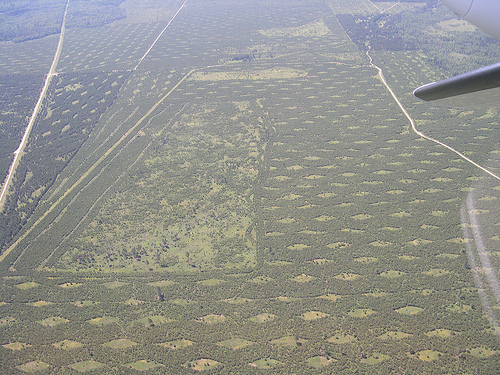Challenges of integrative research
Add Summary

Jan. 10, 2014
Jackie Hulina was a master's student in the Michigan State University's Center for Systems Integration and Sustainability.
You can’t blame scientists for doing what they do best. Integrative research can be a noble goal, but is it feasible?
To give you the short answer, yes. However, it takes a lot more effort than disciplinary research.
Integrative research is one of the new buzzwords surrounding science, and it goes by many names: multidisciplinary, collaborative, holistic, interdisciplinary, the list goes on…
The basic gist of integrative studies is that scientists from various fields work together to solve a problem because reality doesn’t exist in distinct units that belong only to social science, biology, or physics. In theory, the best way to solve a problem is to follow where it leads – even if that means using methods from another branch of science.
That’s nice. But how do you do that?
Some scientists have proposed the idea of thinking in systems. (See Donella Meadows book review) That idea says that reality is comprised of interacting pieces whose collective behavior makes up a system. Depending on those pieces and their relationships, one system’s response to some stimulus can vary drastically from another system. This is a basic premise of the whole “telecoupling” idea I’ve been ranting about – think about Kirtland’s warblers traveling between multiple systems that behave very differently.
Again, this is a nice idea, but there are a lot of obstacles to overcome to make it happen.
Philosophically, how do you decide the “boundary” at which a system ends? At least for Kirtland’s warblers, breeding and wintering systems are fairly obvious. It’s those spillover systems that are tricky. What do you even consider a relevant spillover system and where are its edges? Migratory routes could include a large chunk of the eastern U.S. Political boundaries don’t always make sense ecologically. How would you track the flow of ideas to other systems when it could be as simple as a conversation over the phone or a mass email that’s been forwarded several times?
tricky. What do you even consider a relevant spillover system and where are its edges? Migratory routes could include a large chunk of the eastern U.S. Political boundaries don’t always make sense ecologically. How would you track the flow of ideas to other systems when it could be as simple as a conversation over the phone or a mass email that’s been forwarded several times?
Some would argue that it’s not feasible to study all parts of a system at once, so the cut-off decisions in systems thinking are just as arbitrary as in disciplinary thinking. The challenge here is to decide at which point the science of systems thinking is overshadowed by an incomprehensible web of descriptions and methods – what is the least amount of relevant “things” needed to accurately represent systems’ behaviors? Which locations and types of habitat along the migration route seem to have the most sightings of KW? Where are the political groups that are most active in KW recovery based? How many hits does the U.S. Fish and Wildlife Service’s webpage for KW get in a day?



 Print
Print Email
Email





